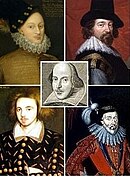
The Oxfordian theory of Shakespeare authorship contends that Edward de Vere, 17th Earl of Oxford, wrote the plays and poems of William Shakespeare. While historians and literary scholars overwhelmingly reject alternative authorship candidates, including Oxford, public interest in the Oxfordian theory continues. Since the 1920s, the Oxfordian theory has been the most popular alternative Shakespeare authorship theory.
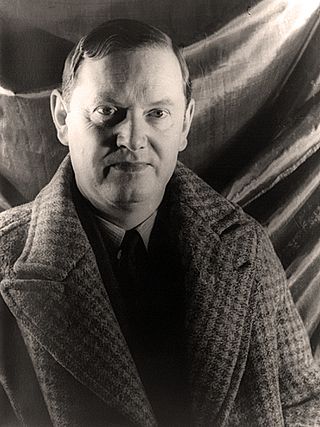
Arthur Evelyn St. John Waugh was an English writer of novels, biographies, and travel books; he was also a prolific journalist and book reviewer. His most famous works include the early satires Decline and Fall (1928) and A Handful of Dust (1934), the novel Brideshead Revisited (1945), and the Second World War trilogy Sword of Honour (1952–1961). He is recognised as one of the great prose stylists of the English language in the 20th century.
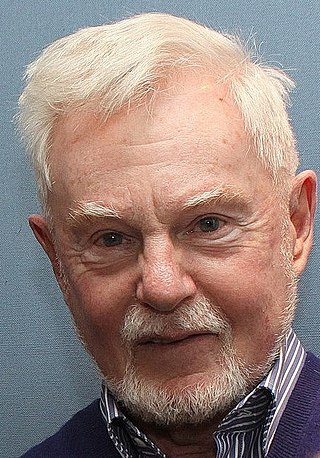
Sir Derek George Jacobi is an English actor. Jacobi is known for his work at the Royal National Theatre and for his film and television roles. He has received numerous accolades including a BAFTA Award, two Olivier Awards, two Primetime Emmy Awards, two Screen Actors Guild Awards, and a Tony Award. He was given a knighthood for his services to theatre by Queen Elizabeth II in 1994.

Alexander Raban Waugh was a British novelist, the elder brother of the better-known Evelyn Waugh, uncle of Auberon Waugh and son of Arthur Waugh, author, literary critic and publisher. His first wife was Barbara Jacobs, his second wife was Joan Chirnside and his third wife was Virginia Sorenson, author of the Newbery Medal-winning Miracles on Maple Hill.
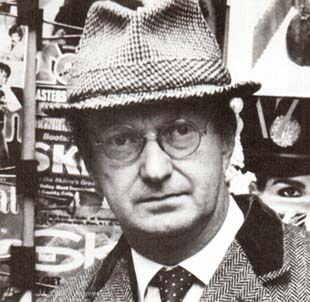
Auberon Alexander Waugh was an English journalist and novelist, and eldest son of the novelist Evelyn Waugh. He was widely known by his nickname "Bron".

William John Banville is an Irish novelist, short story writer, adapter of dramas and screenwriter. Though he has been described as "the heir to Proust, via Nabokov", Banville himself maintains that W. B. Yeats and Henry James are the two real influences on his work.

John Thomas Looney (luni) was an English school teacher who is notable for having originated the Oxfordian theory, which claims that Edward de Vere, 17th Earl of Oxford (1550–1604) was the true author of Shakespeare's plays.
Charles Francis Topham de Vere Beauclerk, also styled Earl of Burford by courtesy, is a British aristocrat and heir to the peerage title of Duke of St Albans.
Margo Anderson, formerly Mark Anderson, is an American journalist and book author.

The Ordeal of Gilbert Pinfold is a novel by the British writer Evelyn Waugh, first published in July 1957. It is Waugh's penultimate full-length work of fiction, which the author called his "mad book"—a largely autobiographical account of a period of hallucinations caused by bromide intoxication that he experienced in the early months of 1954, recounted through his protagonist Gilbert Pinfold.
Arthur Waugh was an English author, literary critic and publisher. He was the father of the authors Alec Waugh and Evelyn Waugh.

The Prince Tudor theory is a variant of the Oxfordian theory of Shakespeare authorship, which asserts that Edward de Vere, 17th Earl of Oxford, was the true author of the works published under the name of William Shakespeare. The Prince Tudor variant holds that Oxford and Queen Elizabeth I were lovers and had a child who was raised as Henry Wriothesley, 3rd Earl of Southampton. The theory followed earlier arguments that Francis Bacon was a son of the queen. A later version of the theory, known as "Prince Tudor II" states that Oxford was himself a son of the queen, and thus the father of his own half-brother.

Charlton Greenwood Ogburn was a lawyer who served as a public official in various capacities from 1917 through to the 1930s. He was employed as legal counsel both for government bureaucracies and labor organizations. His most widely recognized work was undertaken as counsel for the American Federation of Labor in the 1930s.

The De Vere Society is a registered educational charity dedicated to the proposition that Edward de Vere, 17th Earl of Oxford was the author of the works of William Shakespeare. The society accepts there are many alternative views to this proposition and welcomes open debate. It was first registered as a society of Oxford University in 1987.

The Haidbauer incident, known in Austria as der Vorfall Haidbauer, took place in April 1926 when Josef Haidbauer, an 11-year-old schoolboy in Otterthal, Austria, reportedly collapsed unconscious after being hit on the head during class by the Austrian philosopher Ludwig Wittgenstein.
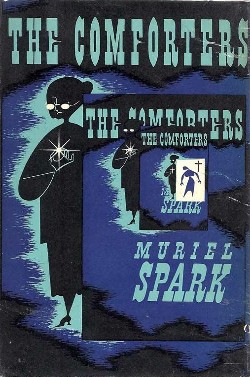
The Comforters is the first novel by Scottish author Muriel Spark. She drew on experiences as a recent convert to Catholicism and having suffered hallucinations due to using Dexedrine, an amphetamine then available over the counter for dieting. Although completed in late 1955, the book was not published until 1957. A mutual friend, novelist Alan Barnsley, had sent the proofs to Evelyn Waugh. At the time Waugh was writing The Ordeal of Gilbert Pinfold, which dealt with his own drug-induced hallucinations.
Roger A. Stritmatter is a Professor of Humanities at Coppin State University and the former general editor of Brief Chronicles, a delayed open access journal covering the Shakespeare authorship question from 2009 to 2016. He was a founder of the modern Shakespeare Fellowship, an organization that promotes Edward de Vere, 17th Earl of Oxford, as the true author of the works of William Shakespeare. He is one of the leading modern-day advocates of the Oxfordian theory of Shakespeare authorship, and has been called the “first professional Oxfordian scholar”.
Percy Allen (1875–1959) was an English journalist, writer and lecturer most notable for his advocacy of the Oxfordian theory of Shakespeare authorship, and particularly for his creation of Prince Tudor theory, which claimed that the Earl of Oxford fathered a child with Queen Elizabeth I.
Bernard Mordaunt Ward was a British author and third-generation soldier most noted for his support of the Oxfordian theory of Shakespeare authorship and writing the first documentary biography of Edward de Vere, 17th Earl of Oxford.












